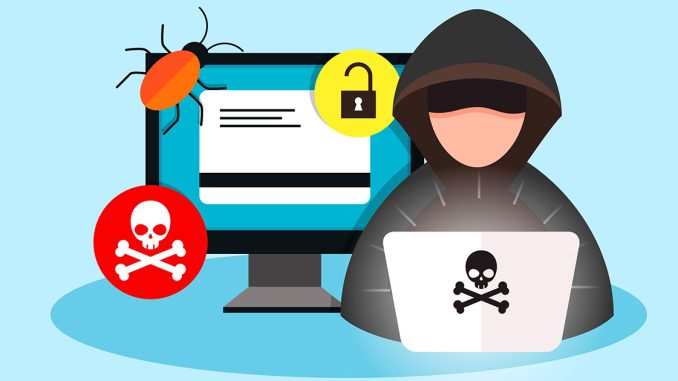
Introduction
As more of our lives move online—from shopping and banking to dating and entertainment—scammers have more opportunities than ever to take advantage of unsuspecting users. These scams can be costly, frustrating, and even dangerous. Fortunately, with the right knowledge and a few smart habits, you can stay one step ahead. In this guide, you’ll learn how to detect common online scams and how to avoid falling for them.
What Are Online Scams?
In simple terms, online scams are deceptive tactics designed to trick you into giving away your money, personal information, or access to your digital accounts. Scammers often impersonate real companies, government agencies, or even loved ones to appear trustworthy. The internet gives them many ways to reach you—through emails, messages, social media, fake websites, and more.
Common Types of Online Scams
1. Phishing Emails and Messages
To begin with, phishing scams are one of the most widespread forms of fraud online. You might receive a message that appears to be from your bank, a tech company, or even your employer, asking you to click a link or confirm your credentials.
How to spot it:
-
Poor grammar and spelling
-
A link that looks suspicious or redirects to an unknown site
-
A sense of urgency or threat (“Your account will be deactivated!”)
2. Online Shopping Scams
Next, fake e-commerce sites or social media ads may offer products at prices that seem too good to be true—and they often are.
How to spot it:
-
A website you’ve never heard of
-
No verified reviews or customer feedback
-
No secure checkout (missing “https://” or padlock symbol)
3. Romance Scams
Furthermore, scammers exploit emotions by pretending to build a romantic connection. Once trust is built, they typically ask for money, claiming emergencies, visa troubles, or medical bills.
How to spot it:
-
Moving too fast emotionally
-
Avoiding in-person or video meetings
-
Asking for money or gift cards
4. Lottery or Prize Scams
Additionally, these scams claim you’ve won a prize—but to claim it, you’re asked to send money for “fees” or provide sensitive personal details.
How to spot it:
-
You didn’t enter any contest
-
The sender’s email is unofficial
-
There’s a catch: you must pay first
5. Investment or Crypto Scams
Finally, many scams today promise quick and massive returns through cryptocurrency or forex trading. They often use fake testimonials and urgent calls to action.
How to spot it:
-
Promises of guaranteed profits
-
Pressure to act fast or “miss out”
-
Lack of verifiable information about the company
How to Detect Online Scams
Now that you’re aware of the most common types, let’s explore how to spot them in practice:
-
Check the URL: Always inspect the website address. A small change in spelling (e.g., amaz0n.com) could mean it’s fake.
-
Look for HTTPS: Secure websites begin with “https://” and show a padlock in the browser bar.
-
Verify the sender: Don’t just trust a familiar logo—check the full email address and domain.
-
Research the company or offer: A quick Google search can reveal if others have reported the site or message as a scam.
-
Listen to your gut: If something feels suspicious, it probably is. Never let urgency pressure you into acting without thinking.
How to Avoid Being Scammed
To stay safe online, consider these proactive steps:
-
Use Strong Passwords – Make your passwords long, unique, and difficult to guess. Better yet, use a password manager to handle them securely.
-
Enable Two-Factor Authentication (2FA) – Adding an extra verification step can make it much harder for scammers to break into your accounts.
-
Don’t Click Suspicious Links – Avoid clicking on unsolicited emails or pop-up ads, especially if they seem overly urgent or alarming.
-
Be Cautious with Personal Info – Don’t give out sensitive data like your Social Security number, banking details, or login credentials unless you’re 100% sure who’s asking.
-
Research Before Buying or Donating – Look up the seller, check their reviews, and verify they’re legitimate before making any payments.
-
Use Security Software – Keep your device’s antivirus and firewall updated to detect and block malicious links and software.
What to Do If You’ve Been Scammed
Even with precautions, mistakes can happen. If you suspect you’ve fallen for a scam, act quickly:
-
Stop Communication – Immediately cut off contact with the scammer.
-
Report the Scam – Notify your bank or payment provider, as well as the platform where the scam occurred (e.g., Facebook, Instagram, email provider).
-
Change Your Passwords – If you shared login information, update those passwords right away—especially if you reused them elsewhere.
-
Contact Authorities – Depending on your location, report the scam to:
-
Your local police or cybercrime division
-
Your national consumer protection agency
-
Monitor for Identity Theft – Keep an eye on your financial accounts and consider setting up credit monitoring or a freeze if needed.
Final Thoughts
In conclusion, while online scams are becoming more sophisticated, your best defense is awareness. By learning how to detect the signs and taking proactive steps, you can confidently navigate the internet without falling victim. Stay cautious, question the unusual, and never let pressure or emotions cloud your judgment. A little skepticism online can go a long way toward protecting your money and your identity.
SEO Meta Description
Learn how to detect online scams and protect yourself from fraud. Discover common scam types, warning signs, and tips to avoid becoming a victim in the di
